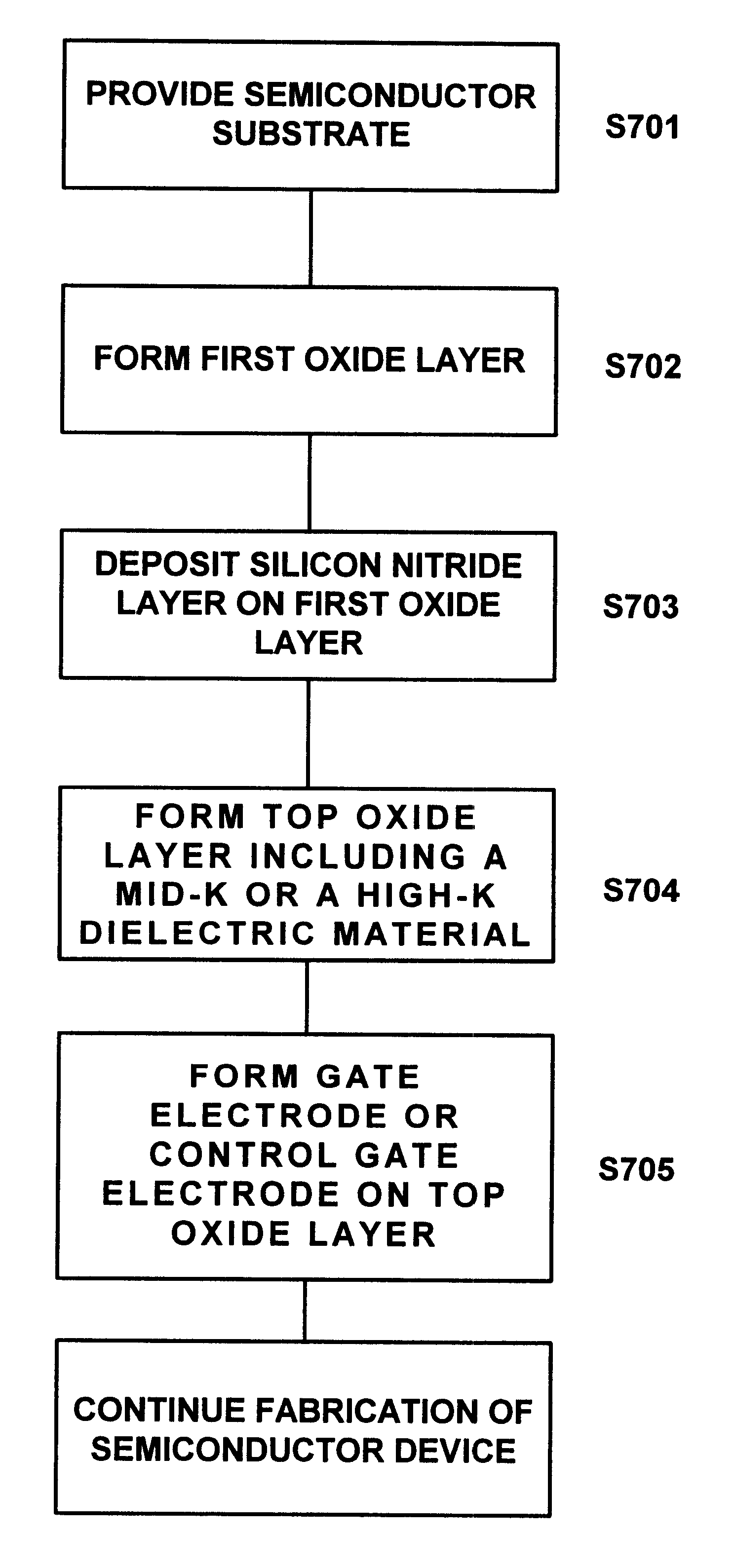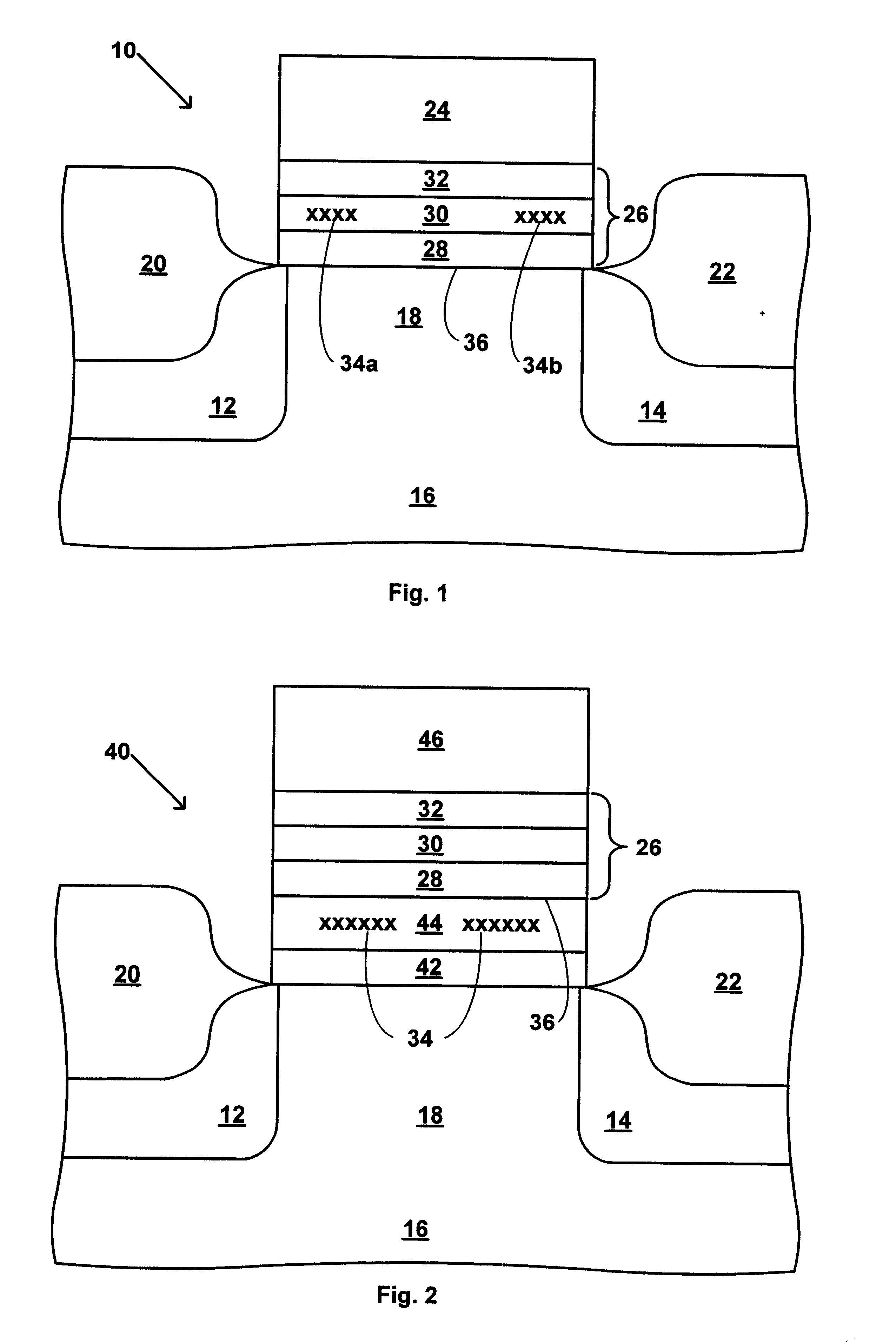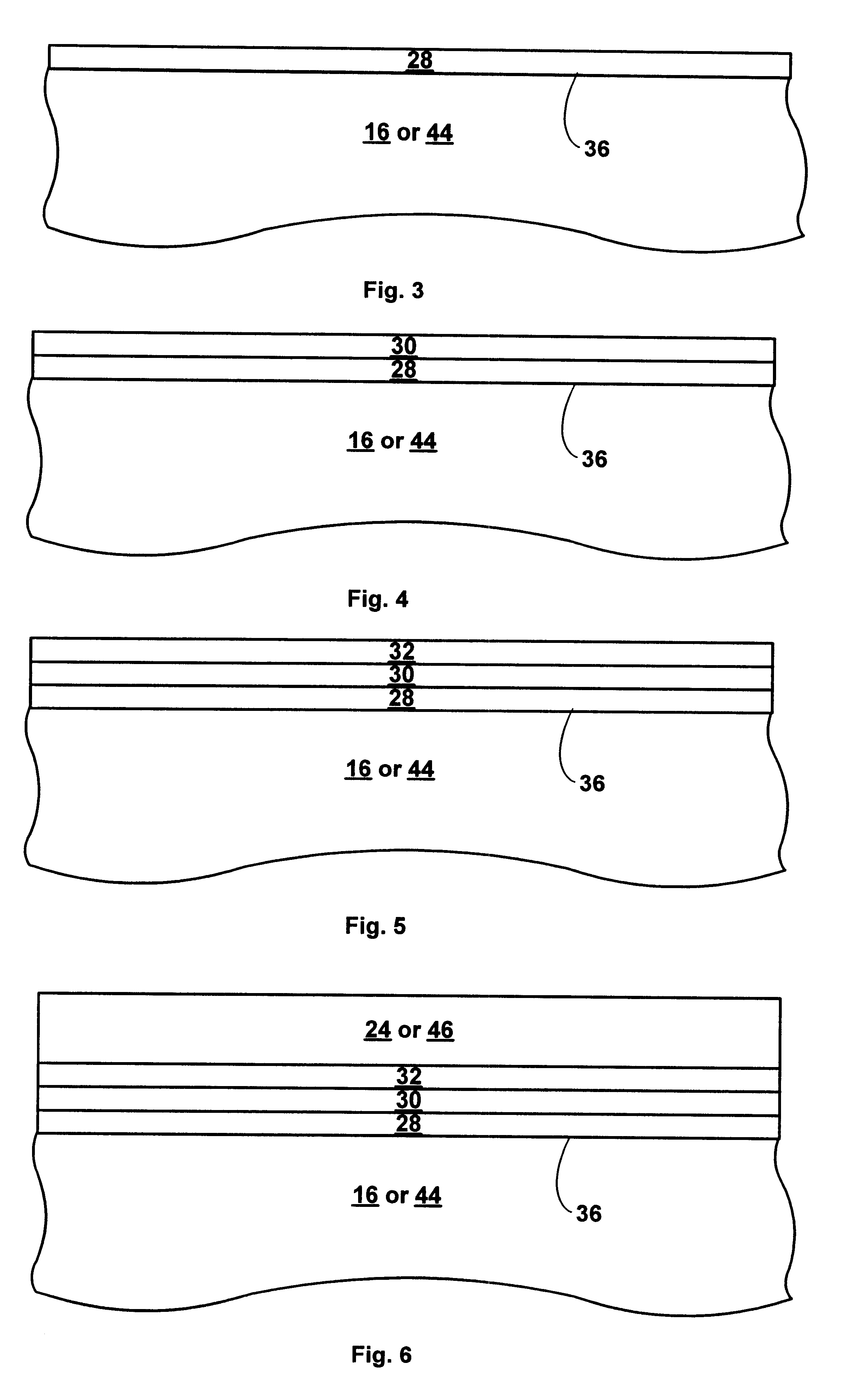Use of high-K dielectric material in modified ONO structure for semiconductor devices
a technology of dielectric material and semiconductor device, which is applied in the direction of semiconductor devices, capacitors, electrical devices, etc., can solve the problems of reducing the charge trapping ability of the nitride layer, and limiting the scaling down of the total physical thickness of the ono layer. , to achieve the effect of reducing the equivalent oxide thickness of the ono, sacrificing the charge trapping ability of the modified on
- Summary
- Abstract
- Description
- Claims
- Application Information
AI Technical Summary
Benefits of technology
Problems solved by technology
Method used
Image
Examples
Embodiment Construction
Referring first to FIG. 1, there is schematically shown in cross-section a transistor 10 suitable for use in a two-bit EEPROM device, such as the MIRRORBIT.TM. device. The transistor 10 includes source / drain regions 12 and 14 located in a semiconductor substrate 16 and separated by a channel region 18. First and second bit line oxide regions 20 and 22 overlie source / drain regions 12 and 14, respectively. A gate electrode 24 overlies the channel region 18 and is separated therefrom by a modified ONO structure 26. The gate electrode 24 and the modified ONO structure 26 form a stacked-gate structure. The modified ONO structure 26 includes a first or tunnel dielectric material layer 28, a silicon nitride layer 30 and a top dielectric material layer 32, in that order, as shown in FIG. 1. At least one of the top dielectric material layer 32 and the bottom dielectric material layer 28 comprises a mid-K or high-K dielectric material, which replaces the conventional silicon dioxide material ...
PUM
 Login to View More
Login to View More Abstract
Description
Claims
Application Information
 Login to View More
Login to View More - R&D
- Intellectual Property
- Life Sciences
- Materials
- Tech Scout
- Unparalleled Data Quality
- Higher Quality Content
- 60% Fewer Hallucinations
Browse by: Latest US Patents, China's latest patents, Technical Efficacy Thesaurus, Application Domain, Technology Topic, Popular Technical Reports.
© 2025 PatSnap. All rights reserved.Legal|Privacy policy|Modern Slavery Act Transparency Statement|Sitemap|About US| Contact US: help@patsnap.com



